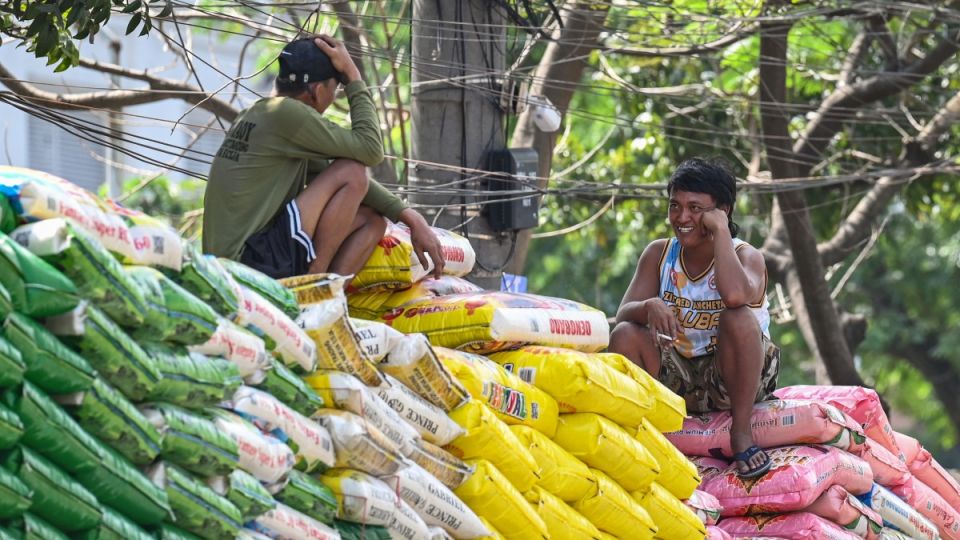Tags
Philippines suspends rice importation for 2 months starting September 1
The move is a bid to stabilise local prices and ensure that local farmers are not disadvantaged by the influx of cheaper imported rice.
Dexter Cabalza – Philippine Daily Inquirer

MANILA – President Marcos has ordered the suspension of rice importation for two months in a bid to stabilize local palay prices and ensure that local farmers are not disadvantaged by the influx of cheaper imported rice.
“To protect local farmers reeling from low palay prices during this current harvest season, [the President] today announced the suspension of all rice importation for 60 days beginning Sept. 1, 2025,” Presidential Communications Office (PCO) Secretary Dave Gomez said in a statement on Wednesday.
The President issued the directive after consulting with Cabinet members on the sidelines of his five-day state visit to India from Aug. 4 to 8 and upon the recommendation of Agriculture Secretary Francisco Tiu Laurel Jr., Gomez added.
Marcos, however, has yet to decide on the recommendation of the Department of Agriculture (DA) to gradually increase the tariff on imported rice to 35 percent from the current 15 percent.
“The President said it is not yet time to discuss tariff increases on imported rice. We will still see if we need to resort to that,” Gomez said.
In June 2024, the President signed Executive Order No. 62, which slashed rice tariffs to 15 percent from 35 percent until 2028 to help tame rice retail prices and slow food inflation. The reduced rate is subject to a periodic review every four months.
Tiu Laurel said the DA would evaluate the impact of the two-month import suspension on the industry and the retail market before making another recommendation to President Marcos.
“If this strategy leads to higher farm-gate prices and better income for our farmers, we may no longer need to raise the tariff,” he added.
Bumper harvest
According to the DA, raising the tariff would increase the price of imported rice and help protect local rice farmers by making their produce more competitive in terms of price.
The DA reported that bumper rice harvests across the world, the lifting of India’s rice export ban, and a record-high 9.08 million metric tons (MT) of palay produced by the Philippines in the first half of the year have put downward pressure on prices, particularly from exporting countries.
Based on the data from the Bureau of Plant Industry, rice imports have reached 2.44 million MT as of July 31, down by 4 percent from 2.5 million MT in the same period a year ago.
“With cheaper imports flooding the market, reports indicate that some private traders are now buying palay for as low as P8 to P10 per kilo, well below the production cost of P12 to P14 per kilo. Farmers have attributed this sharp decline to the influx of cheaper imported rice,” the DA said in a statement on Tuesday.
Tiu Laurel said the temporary rice import ban is a “measured response” to the declining farm-gate price of palay (unmilled rice), one of the challenges farmers face.
Little impact on prices
The President’s latest decision drew mixed reactions from industry stakeholders.
Federation of Free Farmers national manager Raul Montemayor said import suspension without raising tariff rates was “too little too late.”
“Importers might just advance the arrival of their shipments before September. This should have been accompanied by a tariff increase to flush out the excess supply and prevent over-importation,” Montemayor said in a Viber message.
Montemayor added that both importers and exporting countries might question the government’s decision, although the rice tariffication law empowers the President to impose such a ban.
He explained that the quantitative restriction cannot be imposed solely because of the forthcoming harvest season in the Philippines, as it could be considered a violation of the World Trade Organization’s existing rules.
Samahang Industriya ng Agrikultura executive director Jayson Cainglet agreed the two-month suspension “offers no real benefit to our farmers, unfortunately” since the 15-percent import duty remains in effect.
In a message to reporters, Cainglet said traders will simply advance or delay their orders so that shipments will not arrive during the rice import ban.
“Despite the temporary halt, palay prices are expected to remain depressed, and farmers will continue to incur losses,” he said.
Philippine Chamber of Agriculture and Food Inc. president Danilo Fausto welcomed the import ban, but said the government should have imposed it immediately to avert any further declines in the farm-gate price.
In Congress, Speaker Martin Romualdez on Wednesday called on government agencies to use the 60-day suspension on rice importation to crack down on rice hoarding and price manipulation.
Romualdez also called on the DA and the Bureau of Customs to make sure that existing rice stocks are released efficiently and sold at affordable prices.
https://asianews.network/philippines-suspends-rice-importation-for-2-months-starting-september-1/Published Date: August 7, 2025






